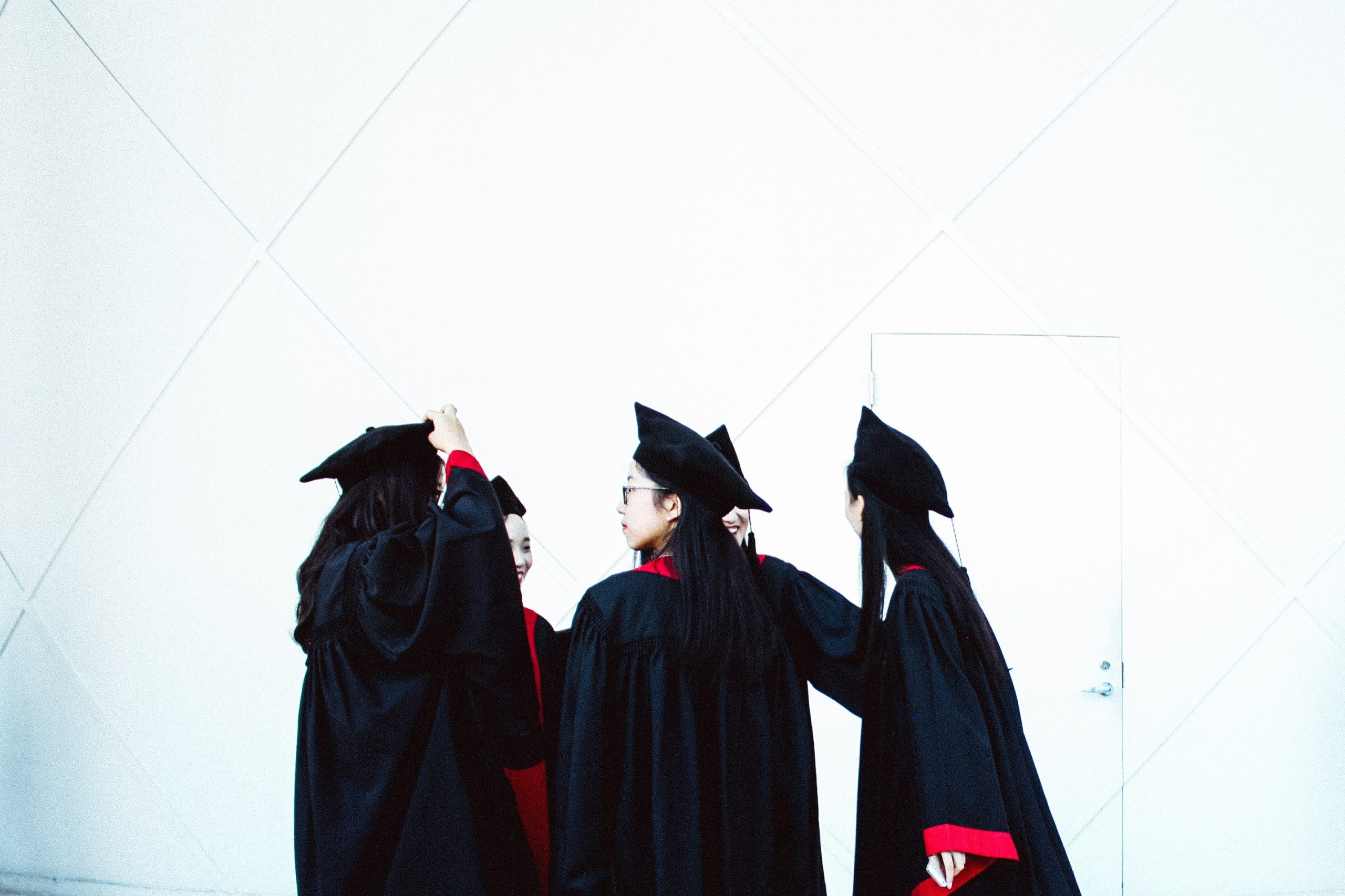
ACT in Career Counselling
October 16, 2016
Canada’s Career Service Professionals: How Do They Differ Across Canada?
October 17, 2016By Adriano Magnifico
The Career Internship Program re-imagines the way we deliver career education, connecting students to their vast potential – and provides a replicable model for other high schools
High schools often proclaim graduation as the key measure of high school success. Overall grad rates continue to rise throughout the country. The Government of Manitoba reported that the provincial rate has steadily climbed over the last 10 years from 71% to 87% and continues to inch ahead. In May, the Toronto Star reported that Ontario’s graduation rate increased from 68% in 2004 to 85.5% in 2016. But too many students meander towards graduation with a sole focus on accumulating credits, rather than on building a strong base of knowledge and skills that will help them thrive in post-high school life. And most schools don’t like to admit it, but they drag a lot of kids over that finish line.
While graduation is an important milestone, it is NOT the finish line. In an ultra-competitive global economy with ever evolving work cultures, the high school experience must be a springboard for life and career possibilities. Too many high school graduates today have no idea what to do with their lives and have done minimal prep for life after grad. High school students generally turn to the guidance counsellor for career advice. Trouble is, those university/college talks, online assessments and career symposiums have a needle-in-a-haystack effect. Pick something and go for it? What if it’s the wrong call? What if a student simply can’t decide what to choose?
Back in 2000, Christine Esselmont, a student at River East Collegiate in Winnipeg, wrote an editorial in the school newspaper that defined a student’s career conundrum: “All high school students would benefit greatly from a program where you’re able to try a variety of different careers throughout the year…. Fully understanding what future careers involve is the only way to make a decision about what you want to do with the rest of your life.” Christine’s insight is especially apt in 2016, with work and careers in a continual state of upheaval. Now, more than ever, schools need to offer career programming to help students make proactive and intelligent decisions about their proper fit in the world.
Adapting to a changing world
The single path to a single career is becoming a thing of the past. Career pundits and economic think-tanks prognosticate that today’s worker will likely change career paths at least a dozen times as jobs evolve and others die out. Digital applications and technologies, artificial intelligence, automation, The Internet of Things and global competition are changing the way people explore, seek and land jobs. Any journalist, postal worker, lawyer, teacher, financial advisor, professor, factory worker or truck driver can speak to workplace tensions over job security, pensions, global competition, living wages or precarious employment.
The Google-sponsored Economist Intelligence Unit report, Driving the skills agenda: Preparing students for the future, details problem-solving, teamwork and communication as high-in-demand skills at workplaces and frequently lacking in young workers; and also identifies digital literacy, creativity and entrepreneurship as essential skills for the network-filled world of the future. Sitting in rows, staying in one building, reading obsolete textbooks or putting away distracting smartphones upon entering a classroom do not address these needs.
Serious disengagement out there
Research reveals that half of Canadian high school classrooms are intellectually disengaged. Winnipeg’s Louis Riel School Division’s 2014 and 2015 Tell Them from Me surveys follows this disturbing trend – just under 50% of its high school students are disengaged in their studies. Disengaged students become disengaged employees.
When students connect to experiences and opportunities that help them figure out who they are, what they’re capable of becoming, what skills they have and who values their skills beyond school walls, school work becomes powerfully relevant and, not surprisingly, extremely engaging.
Everyone is eligible
Since 1995, the Career Internship Program (CIP), located at Windsor Park Collegiate in the Louis Riel School Division, has earned local and national awards for its innovative curriculum design, student-centered pedagogical format and personalized career focus.
CIP is inclusive – any grade 11 or 12 in the regular academic program is eligible. When schools develop new programs, organizers usually target resources towards a particular demographic, often at-risk or gifted students. CIP targets the average student who makes up the vast majority of every school population and for whom no unique or specialized programming exists.
CIP systemically injects innovative career-visioning into traditional high school timetables. The program targets any grade 11 and 12 student and is not prescriptive. Each student chooses courses and activities that meet his/her need, all intertwined within a traditional academic timetable.
Since 1995, 97% of the 2,000+ graduates have recommended the program to peers. Kaila Reger, 2005 CIP grad and current Project Manager at Eccol Electric, says that “CIP was the best decision I made in high school. So often schools focus on academics and fail to teach students about important soft skills. CIP bridged important skill gaps that helped me end up with the career I have today.”
CIP has many classrooms
CIP students participate in many out-of-class experiences for course credit: designing a hovercraft to compete in a CME competition, joining a Junior Achievement Chapter, completing job shadows and internships, participating in Toastmaster’s training, volunteering everywhere, coaching a community club hockey team, attending Chamber of Commerce/professional association meetings or implementing lean start-ups – any activity that ignites personal curiosity and engagement with the community. All students are encouraged to step off the beaten path and explore the unknown. Neuroscientist Gregory Berns discovered that the brain grows and rewires its potential for creativity and new possibilities when people attempt novel challenges and engage in new activities.
The Internet becomes a space to develop a personal brand, and to discover the potential of digital tools to aid assignments and community projects. Students persevere through challenging interdisciplinary partnership projects that test their mettle. Curiosity, diminished through a compartmentalized school system, re-emerges with a veracity that builds confidence and character.
1998 CIP grad Michael Wasylyk recalls that CIP allows “you to paint a picture that you can leverage and understand throughout your life. In CIP, I wrote a biz plan and started a skating school called Canadian Bladex that was successful and revealed to me that I could do anything.”
The CIP model has evolved into four other high schools in the Louis Riel School Division. One CIP hybrid, The Imagine Program, has taken off in Nelson McIntyre Collegiate. A participant and 2016 Loran Scholar, Bilal Ayyache, says, “I’ve learned how to lead, work on teams, be creative and come up with innovative ideas, things you don’t get in the regular courses. Imagine helped me discover things about myself I never knew; I created an amazing story that caught the attention of the Loran Scholar interviewers. It has changed my life.”
Re-imagining career education
Life and work are experiencing a cultural and technological shift at a breathtaking pace, the type of global transformation we have not seen since the last century’s Industrial Revolution.
Strategic, systemic career development can be a powerful catalyst for linking school to self-awareness, skill development and professional networks. Only when students authentically experience a multitude of career possibilities and understand the evolving demands of workplaces, can they truly envision possibilities for life and work, what Erik Brynjolfsson and Andrew McAfee dub the“second machine age.”
The Career Internship Program offers a way to re-think the way we deliver career education, connecting students to their best selves and their vast potential in a hyper-connected world. And, the program’s longevity has allowed it to iterate and pivot into a replicable model for high schools.
It’s time to re-imagine the way high schools do career education. Our students are depending on us.
Adriano Magnifico is the Career and Entrepreneurship Consultant in the Louis Riel School Division located in Winnipeg, MB and the creator of the Career Internship Program. He can be reached at adriano.magnifico@lrsd.net.

